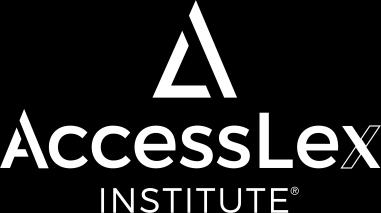Predicting Bar Success:
The Mediating Effects of Law School GPAS
Background
Bar passage is a high stakes achievement that has implications for both law graduate earnings and law school accreditation. These considerations often lead law schools to make guesses about applicant bar passage potential using preadmission factors like final UGPA and LSAT score. However, law students undergo many experiences between acceptance to law school and acceptance to the bar Given this dilemma, our study uses statistical mediation to examine whether LSAT score and UGPA can help predict bar passage, or whether variation in bar passage is better explained by the intervention of other factors during law school
Data and Methods
Statistical mediation is a method that attempts to explain the relationship between two variables (LSAT/UGPA and first-time bar passage) via a third variable (1L LGPA). This process helps us explain how the original bivariate relationship works
Predictors
1L LGPA mediates 81% of the effect of final UGPA on first-time bar passage.


Did You Know?
The Law School Admission Council (LSAC), which designs the LSAT, cautions against using it to predict outcomes beyond early academic performance 1
Mediation (Indirect) Effect, 1.040
Note: Total Effect = Indirect (Mediation) Effect + Direct Effect
Direct Effect, 1.009
Overall, final UGPA and
LSAT score directly predict very little in the way of bar passage.
1Law School Admissions Council (2014).
Cautionary Policies Concerning LSAT Scores and Related Services.
1L LGPA also mediates 73% of the effect of LSAT score on first-time bar passage. Average Mediation (Indirect) Effect 0.054
Direct Effect, 0.020
1L LGPA explains nearly all the statistical relationship between final UGPA, LSAT score, and first-time bar passage
Note: Total Effect = Indirect (Mediation) Effect + Direct Effect
Implications
LSAT score and UGPA predict far less variation in first-time bar passage than previously thought.
Instead, these preadmission factors primarily predict variation in 1L LGPA, which is independently associated with first-time bar passage score. When 1L LGPA is accounted for, the direct effect of preadmission factors on firsttime bar passage is marginal.
Bar passage odds are not preordained at admission but can change and improve throughout law school. Continuing to adopt pedagogy and interventions that support and foster students' sustained academic progress in law school is the key to improving their odds of bar success.
